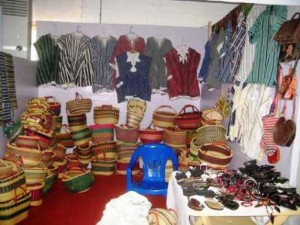US to expand Africa Trade Initiative to include Ghana
 The US intends to expand a new trade initiative it started to include Ghana.
The US intends to expand a new trade initiative it started to include Ghana.
Ambassador Michael Froman told a hearing on the African Growth and Opportunity Act (AGOA), that to build upon AGOA’s successes, the US government and its African partners launched the Trade Africa initiative with the East African Community (EAC) in 2013, signing a multifaceted Cooperation Agreement in 2015 focused on compliance with WTO standards on trade facilitation, sanitary and phytosanitary measures, and technical barriers to trade.
“The US is currently working to expand the Trade Africa Initiative to involve new partners, including Cote d’Ivoire, Ghana, Mozambique, Senegal, and Zambia,” he said.
AGOA has been noted to be successful. In June 2015, it was projected that exports of textiles and apparel from African countries to the US under AGOA) would reach $4 billion over the next 10 years.
In 2014, US clothing imports from sub-Saharan Africa countries reached $986 million, up nearly six per cent from 2013, as countries such as Lesotho, Kenya, Ethiopia and Tanzania participated in the programme.
AGOA is also said to have fueled growth in Africa-US trade since the Act came into operation. AGOA-related non-oil exports from Africa have grown five-fold to $53.8 billion from $8.1 billion over ten years, by 2011.
As of June 2011, there were 37 countries in the programme, but on October 25, 2011, President Barack Obama signed a presidential proclamation designating Côte d’Ivoire, Guinea and Niger as eligible for AGOA benefits.
The programme expands the list of products which eligible sub-Saharan African countries may export to the United States subject to zero import duty under the Generalized System of Preferences (GSP). While general GSP covers approximately 4,600 items, AGOA GSP applies to more than 6,400 items. AGOA GSP provisions are in effect until September 30, 2015.
Meanwhile, on June 11, 2015 the US Congress renewed the AGOA for another 10 years. The trade agreement will end in 2025.
By Emmanuel K. Dogbevi
